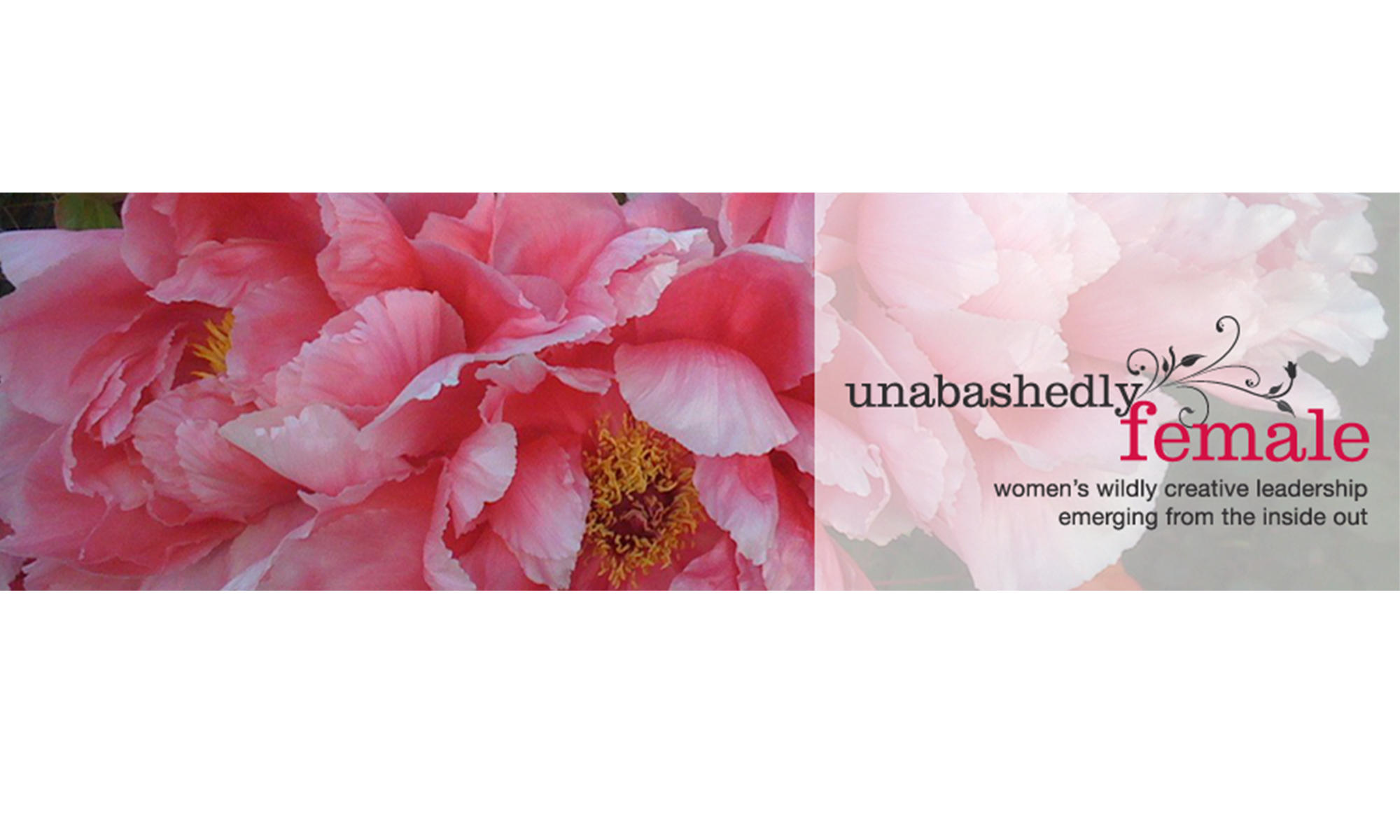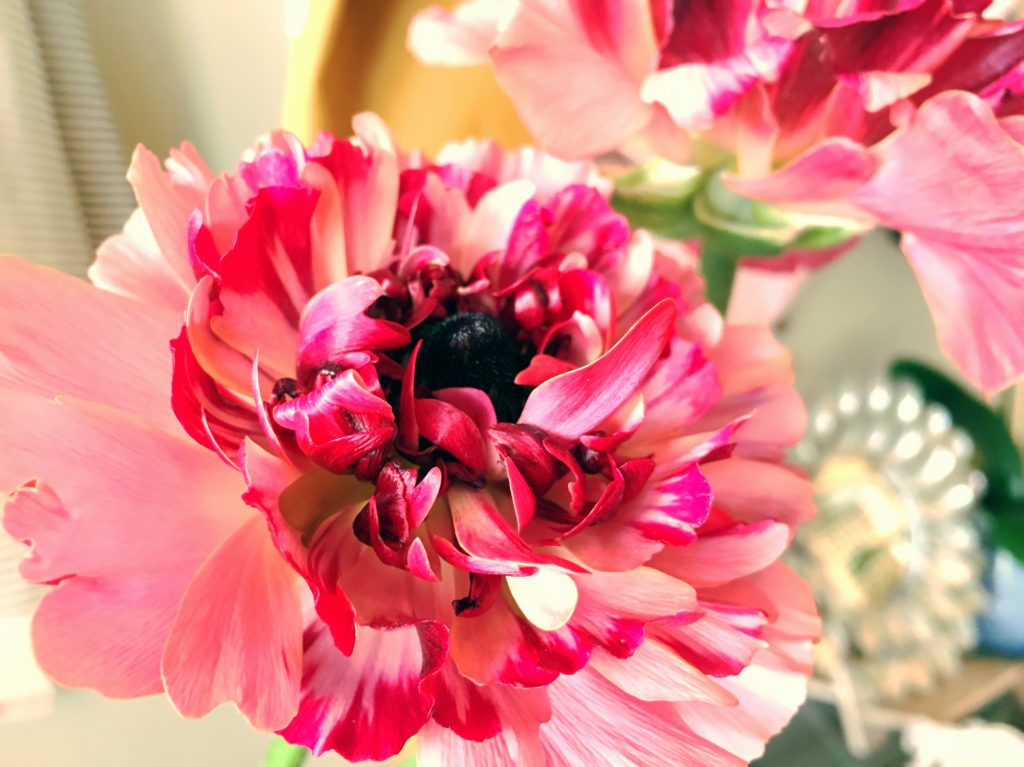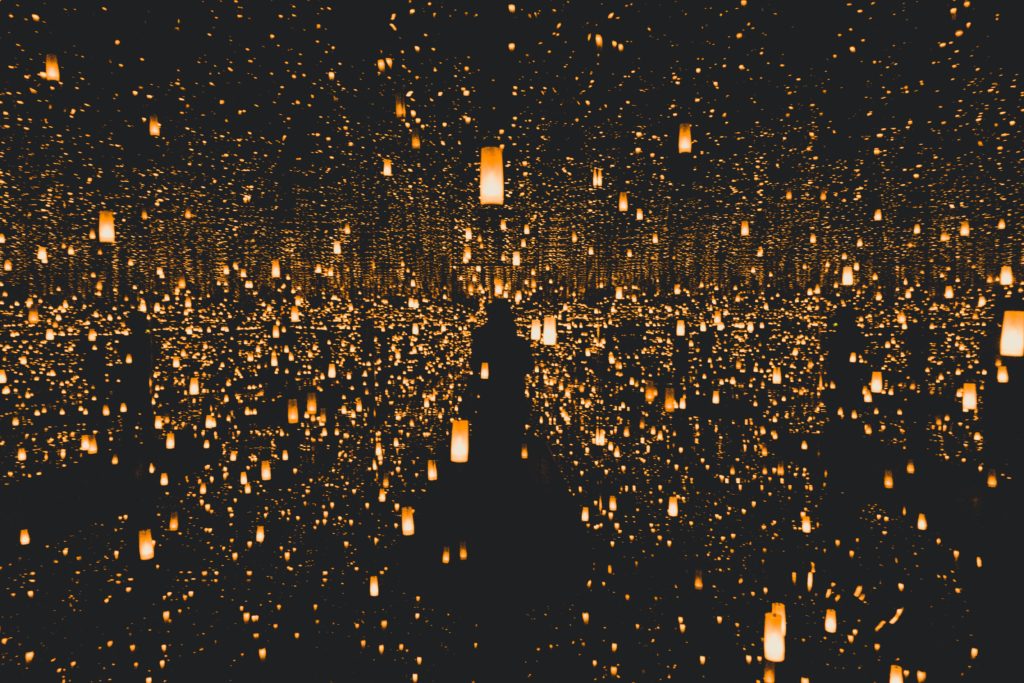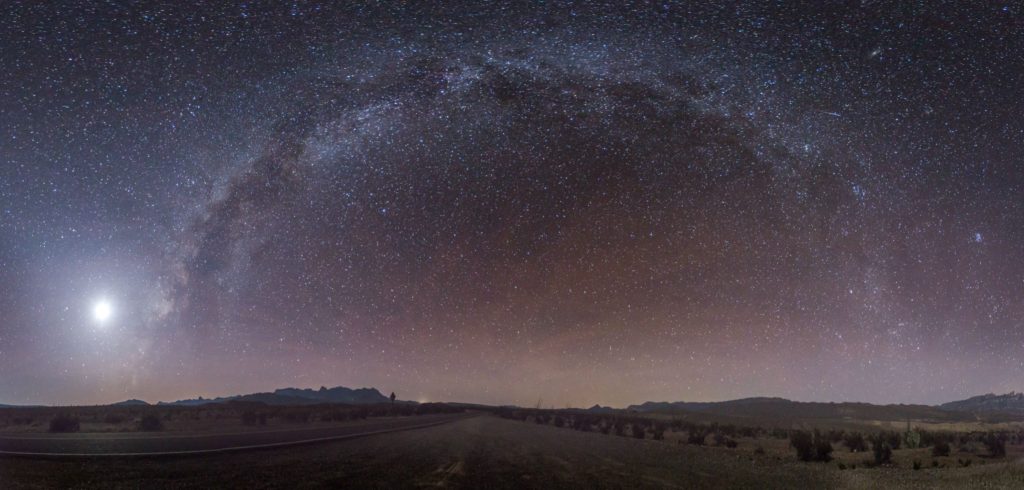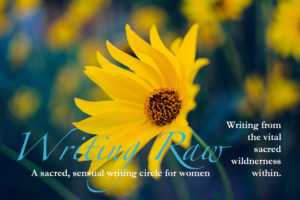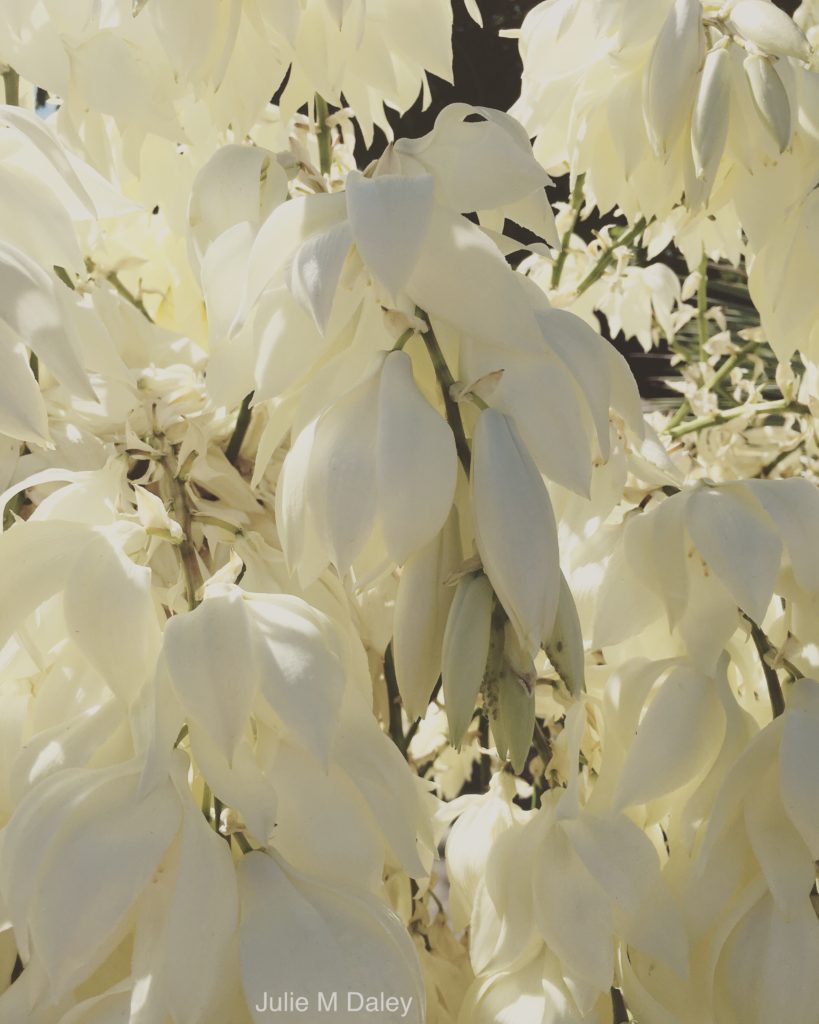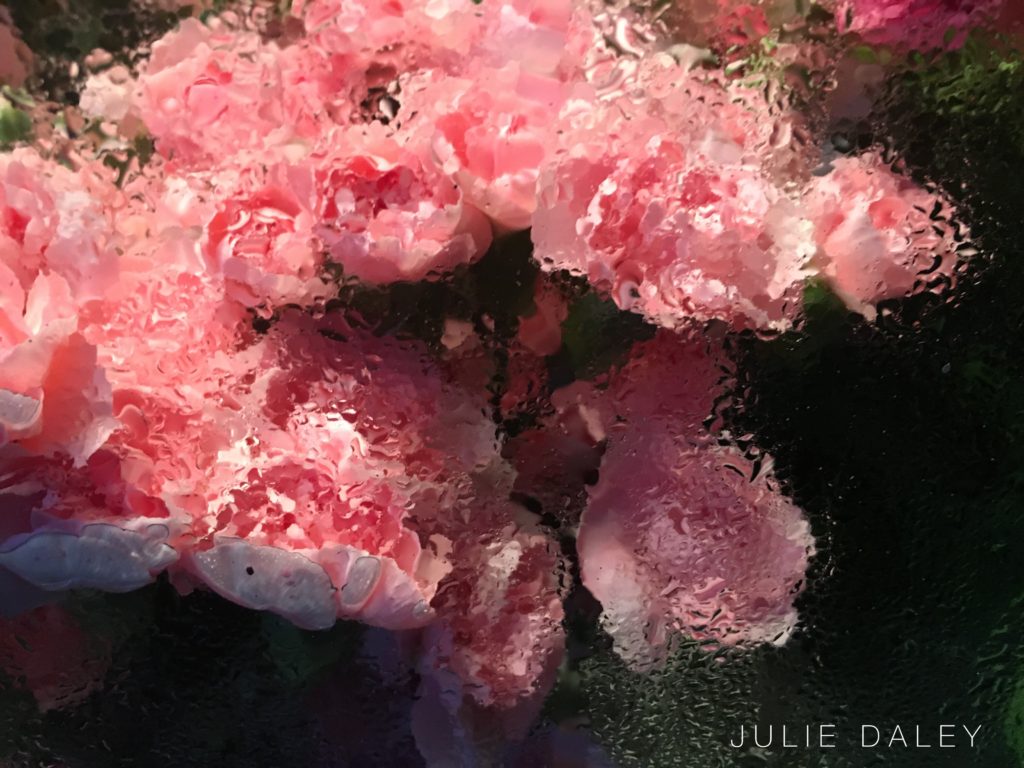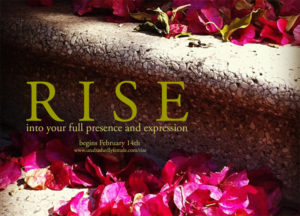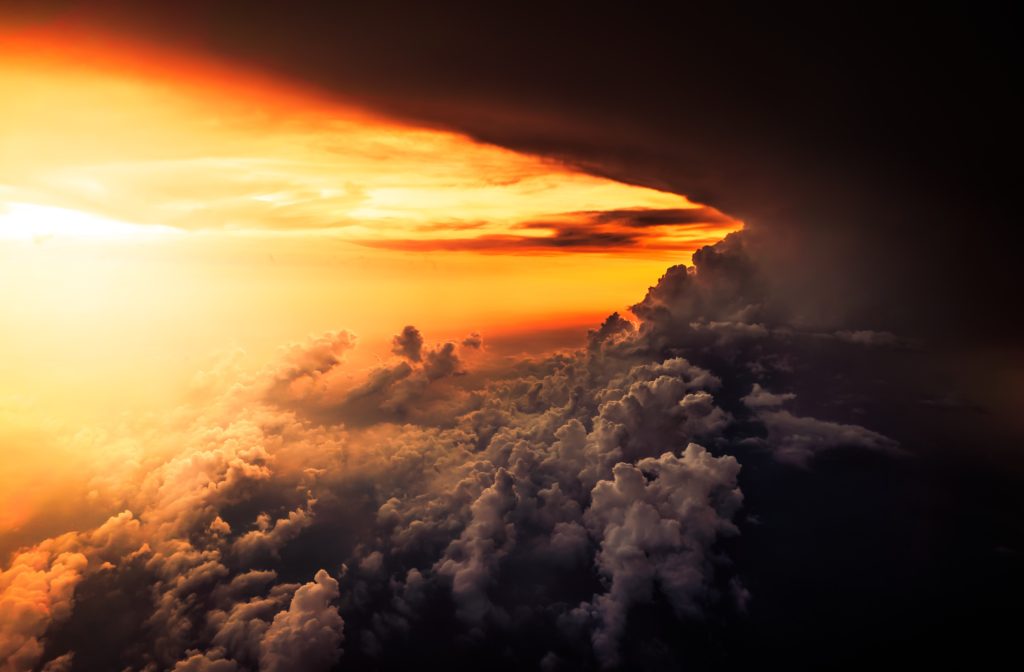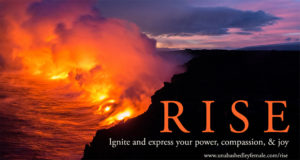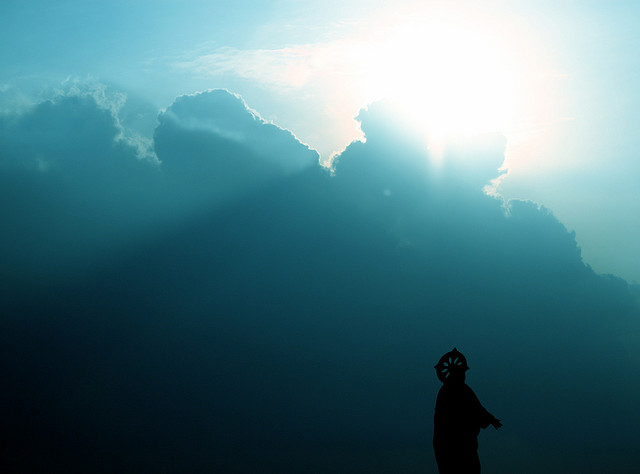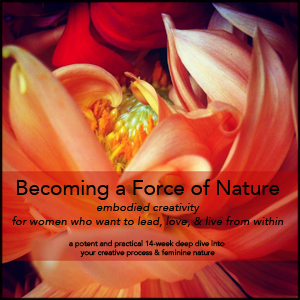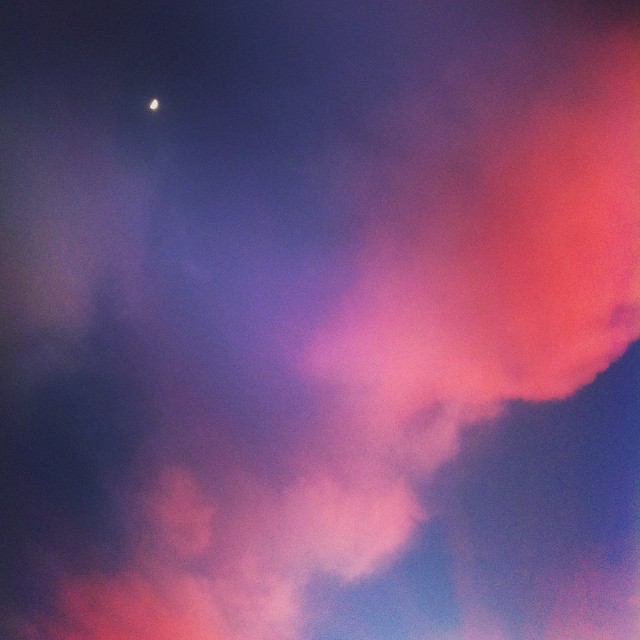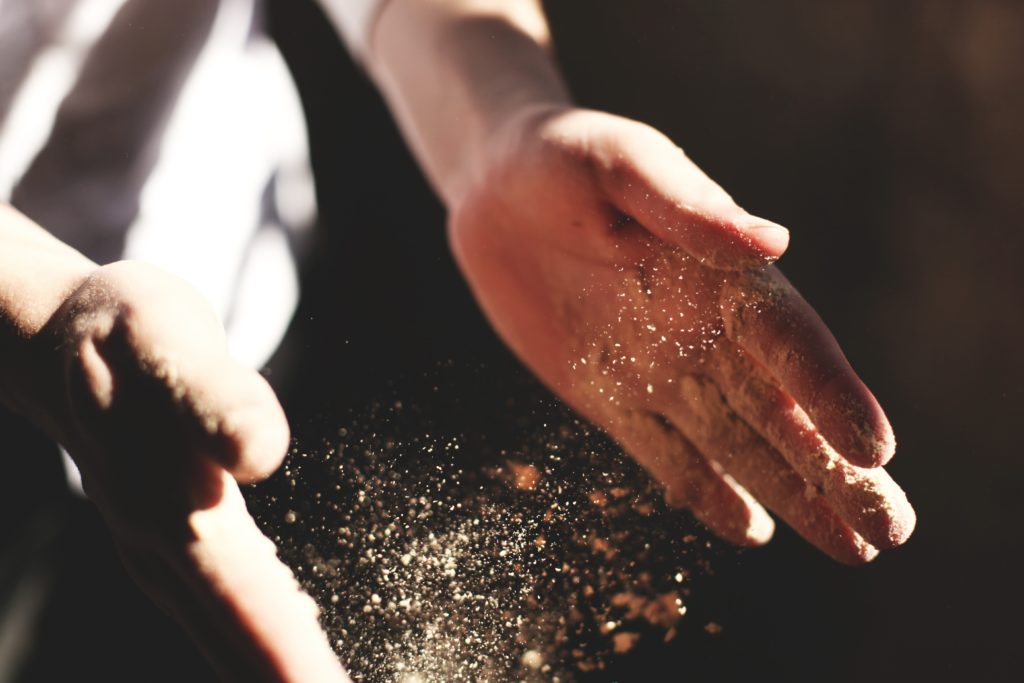
“Eros is the drive of life, love, creativity, and sexuality, self-satisfaction, and species preservation. Thanatos, from the Greek word for “death†is the drive of aggression, sadism, destruction, violence, and death. At the conclusion of C&D, Freud notes (in 1930–31) that human beings, following Thanatos, have invented the tools to completely exterminate themselves; in turn, Eros is expected to “make an effort to assert himself in the struggle with an equally immortal adversary. But who can foresee with what success and with what result?†~ notes on Sigmund Freud’s theories by Professor Easton in UMN 221 notes
This is where we are at right now. We have a huge, powerful wave of aggression, violence, and an incredible drive toward death as a species happening on our planet. But, Eros is making ‘an effort to assert himself’…the impulse to live, the drive to life, the force of creativity, sexuality, and species preservation!
About six months ago, I went through a really hard time in my life. I had been doing some deep work and uncovered something that had always been present in my life, but up until now, I knew it as more of a general sense of not really wanting to be here — like a withholding of myself from life, from relationships, from truly entering into life unbridled, unmasked, and no longer afraid to speak and create as my heart wants to speak and create. But at this moment, for the first time in my life, really, the impulse to end my life appeared out of the blue. It was only an idea for a moment, but the power of the desire toward death was what was shocking. It was truly an incredibly strong energy. I am grateful that I have the ability to reach out to a few people in my life who could hear it and could hold me as I needed to be held. I never was going to do anything, but that impulse is what began to teach me about life and death and how we dance between these two powerful energies, Eros and Thanatos, all the time.
Before this moment, I had been totally engrossed working with ‘Eros’ and its importance to our world. I had started a podcast called, “Awakening Eros†and felt so compelled to talk about it, research it, share it, and to really understand what Eros is. And then, my feet grew cold. I held back. I wondered if anyone would understand. Heck, I didn’t even fully understand the intense drive within them.
But after this moment happened, I was now very aware of the power of Thanatos — the drive toward death. And over these past months since this moment, I’ve come to see how — in both little and big ways — these two drives fuel much of the unconscious ways we inhabit our lives. And how Thanatos suppresses our own impulse toward living a full, joyous existence. I was killing my own drive to explore and express everything I sensed inside around Eros and love and being human.
Thanatos does not have to appear as taking one’s life to be present in our lives. It is present all the time. It is the drive toward death, just as Eros is the drive toward life. But there are many ways to kill our life drive without dying. We kill our joy. We kill our own impulse to create. We kill the power and desire for true sexual expression.
The Poet, David Whyte, speaks of the single malt essence of one’s not wanting to be here. In reading his words for the first time a few years ago, I was able to bring to light this deeper desire within me to run away. I have both stayed in and left situations when I wanted to leave. Leaving isn’t always running away. And sometimes it is.
As I’ve contemplated this dance between Eros and Thanatos, I’ve wondered if I (and any one of us) can truly make a full choice to stay, can truly choose this once, or if it has to be chosen over and over and over again. And I’m not just saying this in the large sense of life or death, but in the small moments where it feels like you will die if you stay and can only survive if you run, or when it feels like you will die if you run and can only survive if you stay. Moments in relationship with others, with yourself, with your work, with a creative project.
Whyte writes,
“Strangely, we are perhaps most fully incarnated as humans, when part of us does not want to be here, or doesn’t know how to be here. Presence is only fully understood and realized through fully understanding our reluctance to show up. To understand the part of us that wants nothing to do with the full necessities of work, of relationship of doing what is necessary, is to learn humility, to cultivate self-compassion and to sharpen that sense of humor essential to a merciful perspective of both a self and another.â€
This impulse to live, the impulse toward life, the fear of entering into the mysterious realms of creativity, sexuality, vulnerability — being human, really — requires us to acknowledge the depth of our not wanting to be here, and perhaps the pain that life underneath it. That is what I needed to see and it is what brought me more present to my life and to a kind of humility and self-compassion I am only beginning to crack the surface of. The sense of humor is a glimmer I spot every now and then.
We often read that 80% of life is just showing up. You’d think that this would be so simple. Just show up and life handles the rest, so many say. But now I am thinking this isn’t so easy for many of us when we have this compulsion to run. And in the case of facing what’s here on our planet right now? What if 80% of this right now is showing up? I mean, though, REALLy showing up. Not running. Staying even when “part of us does not want to be here, or doesn’t know how to be here.â€
I know for me that being here brings great grief when I long to feel so deeply connected to others, to touch and be touched, yet I fear the same as well. I long for it and I fear it. I long for a human world where we care about each other and each other’s welfare. A world where all people of every race, class, orientation, ability are seen as of equal value and worth, where all people have the chance to be happy, successful, loved, and known. A world where all creatures are seen as of equal value. A world in which the Earth is loved just as she loves us.
I would hedge a bet that very few of us, if any, truly know how to be here at this time on Earth. How does one be here in the face of what is happening? But this is where humility comes in. We’ve been an arrogant species for a long time. But to be here now, facing this, staying in this human relationship because we know it is where we can grow and evolve both individually and collectively — that is the invitation.
Staying because the love that we are asks this of us.
We stifle our fullest self-expression on so many fronts. We hide our hearts. We hide the bigness of spirit and the depth of the soul. We hide the true desires that fuel our sexuality and creativity. But most importantly we hide our tenderness and our fear that our not knowing how to be here makes us weak, that our reluctance to stay makes us somehow broken. Instead, I think they are what makes us human.
At a time when Eros is challenging Thanatos, and when love is trying to make a full emergence onto our planet, it is our humanity we must come to be present to. The seemingly incoherent mess that we see ourselves to be. Being human is messy. To be human is to be awake to one’s own vulnerability in the face of all of this and NOT KNOW what to do or how to do it. Being human requires us to feel, to ask for help, to realize our own powerlessness even as we engage with the creative strength and power that flows from within us. Being human is existing in contradiction and paradox.
Eros is inviting us to engage — to live — to create — to relate. To choose to stay and to live, together. It is up to us to become present enough to listen for the way, to listen to what life can teach us.
…
Come visit me at JulieDaley.com to discover more about how I might support and guide you as you travel this deep and sacred journey to awakening your erotic, creative nature.
